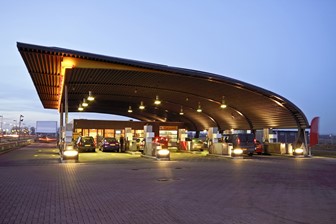Biofuels and air quality: IEA confirms that ethanol lowers pollutants
Blending ethanol in petrol has an immediate impact on reducing emissions of harmful air pollutants from today’s cars, a new report from the International Energy Agency confirms. The finding supports the need for higher ethanol blends such as E85 as EU countries struggle to achieve their decarbonisation targets.
“Ethanol generally results in lower air pollutant emissions when blended with gasoline,” the IEA report says, “with the level of emissions falling as the share of ethanol rises. This improvement is especially notable for [particulate matter], wherein lower emissions from high-ethanol blends are achieved with direct-injection spark-ignition engines.”
In tests of most of the gaseous and liquid alternative fuels[1], E85 (containing up to 85% ethanol) was one of the best overall performers in terms of reducing NOx and PM emissions in modern and older cars. The report also noted that ethanol use reduces tailpipe emissions of carbon monoxide.
Given the high level of public concern about urban air quality and the fight against climate change, the report offers a solution that can be implemented in today’s infrastructure – noting also that other biofuels also reduce harmful emissions.
Other studies have also demonstrated the role of ethanol in reducing emissions in heavy duty vehicles, notably through ED95 blend in dedicated engines. Comparing natural gas, diesel and ED95, the French environment agency ADEME indicated that ED95 vehicles were the best solution to reduce CO and NOx emissions and improve energy efficiency. In addition, on a full lifecycle analysis, ED95 reduced CO2 emission by more than 88% compared to diesel.
The IEA and other international organizations, including IRENA and the UNFCCC, have drawn attention to the need for urgent action to fight climate change – and the need to massively upscale the use of biofuels to reduce emissions.
Recent research shows that Europeans will be driving cars with internal combustion engines for decades to come – even with a gradual uptake of electric vehicles. This highlights the need for solutions that work today as well as in the long run. Their “potential to reduce CO2 emissions means sustainable biofuels will still be useful in the long-term decarbonisation of the transport sector, especially for long-distance heavy-duty trucking, aviation and marine transport” the report states.
[1] Gasoline, E85, Biomethane, Diesel, FAME Biodiesel and HVO
